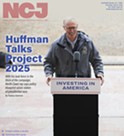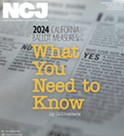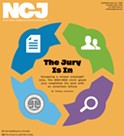[
{
"name": "Top Stories Video Pair",
"insertPoint": "7",
"component": "17087298",
"parentWrapperClass": "fdn-ads-inline-content-block",
"requiredCountToDisplay": "1"
}
]
If you include my college newspaper, I've worked for eight different news organizations as a reporter or editor. Never once did I flash a press pass. I'm pretty sure I never had one, even in the six months I covered the cop beat. The closest I came was a press sticker I had for my car so I could park at the Bob Hope Golf Classic in Palm Springs, where my paper sent me to file feature stories. It got me free parking into all kinds of events until the Honda died years later.
I never needed a press badge. I bring this up because some local folks want to know if a press badge would stop police from hassling them when they try to photograph or videotape altercations that involve cops.
The answer is no. My students on The Lumberjack newspaper make press badges for themselves each term. I don't discourage them, although I know the badges carry no weight. The strength of the badge is only in the courage it gives whoever's wearing it.
My favorite scene in a movie is from the original Walking Tall with Joe Don Baker as Sheriff Buford Pusser. He walks into a bar and a woman says, "Sheriff, you got a warrant?" He answers, "I carry it in my shoe." Then he kicks down the door.
I don't need a press badge. I carry the First Amendment in my shoe.
The reason we call the press the Fourth Estate is that our Founding Fathers expected it to act as the fourth check on government power. If the executive, legislative and judicial branches fail to check each other's power, the independent press is there to make sure everyone knows.
I'm not sure that corporate-owned press really counts as an independent press, but that's where citizen journalists come in.
The U.S. Supreme Court has acknowledged, sort of, the right of people to use their cameras to document the police interactions that take place in public. It did so in 2012 by refusing to review a case that came up out of a federal appeals court in Chicago. That appeals court had ruled against an anti-eavesdropping law that would have made it a felony to videotape a police officer in public with a microphone turned on. The court said the law restricted "an expressive medium used for the preservation and dissemination of information and ideas."
You can understand why some police officers get testy when you pull out a camera in public. I get nervous when people videotape me, and I can't imagine I'd be caught doing anything viral-worthy.
The reason officers wear a uniform and shiny badge is to get attention. And they wield guns and batons to command attention. Right now, the actions of some police in some communities have gotten the attention of the whole country. We also live in a world in which everyone has a camera with a mic. So now if someone asks me: "Marcy, you got a camera?" I tell them I carry it in my phone.
Here is the bottom line. You can photograph or videotape in public. And you have the absolute right to witness police interactions with the public and document those interactions with a camera, mic turned on. The police have no right to seize your phone or camera or take your digital media cards. To get the photographs or video you take, police will need a search warrant signed by a judge.
Two different things have been happening that I'm aware of. Some people have taken out phones to videotape situations in which someone is resisting arrest. That's what happened in the PalCo Marsh recently as police tried to clear out a homeless encampment.
But what's also starting to happen is that more than a few journalists, student journalists and citizen journalists have taken to listening to police scanners and showing up when it sounds like something is happening. So our local police find themselves responding to a car accident, or a fight, or someone wielding a gun and find themselves surrounded by half a dozen camera-wielding nosy nellies.
Because some of these nellies are my students, the police have complained to me, or my colleagues. We turn around and high-five the students. We teach journalism and mass communication. That's the study of how to witness events and massively communicate what you see, hear and smell. They are doing exactly what they are supposed to — hustling to cover news. A complaint that a student of mine is hustling for a story with a little too much passion will likely get the kid a higher grade.
In big cities, any interactions with police draw a big crowd. But crowds of people don't faze big city cops. In the city, you won't have half a dozen people with a camera; you will have dozens of people with cameras.
We have a backwards problem here in this backwoods place.
If people had had camera phones over the last 50 years, police would probably be more careful about how they interact with people; Your average Joes pulling out camera phones, even here, wouldn't cause any problems.
But know this, you citizen journalists. You can't just photograph and videotape private citizens minding their own business in public and post those images to the Internet. If they have a reasonable expectation of privacy, even in public, you could be slapped with a lawsuit after the fact for invasion of privacy. And if you slap some funny text on top of someone's image in Photoshop, and send it bouncing around the Internet as a meme, you could be sued for misappropriation of the person's identity. And if too many people do this too often, the courts might get testy toward citizen journalists. Last month, a former cop turned South Carolina state representative proposed a law that would require journalists there to register. Most First Amendment experts said the law would have no chance of passing, or withstanding a legal challenge. But that was before Donald Trump won the South Carolina presidential primary.
Would you feel so sure about your rights as a citizen journalist to photograph in public with a U.S. Supreme Court filled with justices appointed by President Trump?
Marcy Burstiner is chair of the Department of Journalism and Mass Communication. As she is slow to get out of her chair, and hates leaving her house, she appreciates those in the press who jump to cover what needs to be covered.
more from the author
-
Endangered
Why local news is a threatened species and what you can do to protect it
- Oct 3, 2019
-
Sinclairly Yours
- Jun 7, 2018
-
The General Concerns
- Nov 2, 2017
- More »































